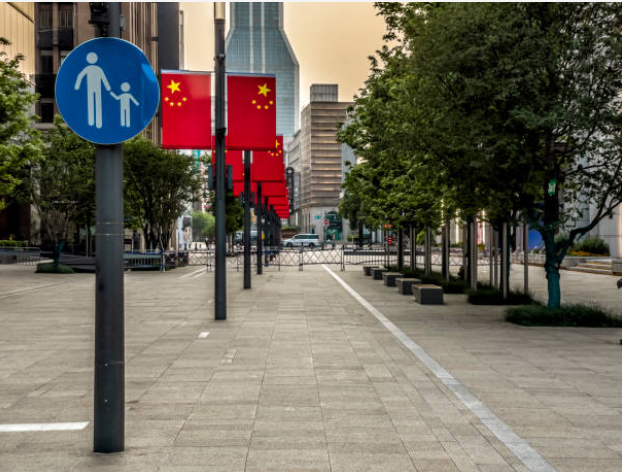As China’s real estate market remained weak in 2024, its total property sales value plummeted by 27.1% (NBS), going from $5.7 TN in the first quarter of 2023 to $4.1 TN in 2024’s first quarter. Worth noting, in the first half of 2024, the total gross floor area (GFA) sold fell by 22%, following a first sharp decline of 17.3% in 2023.
Interestingly enough, the completed new home GFA as a percentage of all GFAs, reached its all-time high of 28% last April. It can be explained by the fact that Chinese homebuyers want to buy completed homes, being now reluctant to bare the risk of buying an uncompleted property.
We will put the effort in explaining the different factors behind this challenging period for China’s real estate.
Scarce Funding?
The most obvious wall that the Chinese housing market ran into was the funding challenge. Since winter 2022, the government has been obliged to rescue investment funds. 3 of them are worth looking into: China Cinda Asset Management Co, China Orien Asset Management Co, and China Great Wall Asset Management Co. In November 2022, these 3 funds combined where worth CNY 580 bn. 2 of these funds, that where worth CNY 280 bn back in 2022, are now only worth CNY 35 bn (2024). All of these recent events show a reluctance from the Chinese government when it comes to putting in place a lending standard for the Chinese people.
On May 17, the People’s Bank of China announced a CNY 300 bn budget destined to buy out unsold properties, in the hope of encouraging the Chinese banks to give out loans. Only, as of June 2024, only 4% of the budget was deployed and used.

Moreover, the restructuring progress has been extremely low. When looking at the US investments in China, there is a non-equivocal observation that the defaults not-only increased, but tenfold. Last year only, there has been a USD 6.3 bn defaults, totaling all offshore bonds defaults to USD 140 bn. Of the 50 companies that announced a restructuring, only 5 have shown good signs of recovery: Fantasia, Yuzhou, Zhenro, Logan, and Powerlong. The other 45 companies have either made no progress in their restructuring, or very little.
Market implications and outlook

The continued decline in the real estate market has broader implications for China’s economic growth. Investment in residential real estate fell 10.3%, and the national inventory of unsold properties reached an all-time high of 405 million m² in February. The situation is aggravated by a decline in construction activity, despite policy measures introduced in mid-May aimed at easing market constraints.
Looking ahead, the market outlook remains bleak. Sales from the top 100 developers were weak, down 37.5% y/y, and we are unlikely to see a significant rebound in property sales in the second half of 2024. not limited to domestic matters; Solving the problems facing offshore bondholders will be difficult without widespread financial restructuring and a strong recovery in property sales.
A closer look:
In order to give you a better perspective of the Chinese real estate crisis, we will focus on 3 important developers in the market: China Jinmao, Vanke, as well as Seazen.
Despite a 48.2% year-on-year decline in contract sales, China Jinmao manages to maintain strong liquidity thanks to the support of Sinochem Holdings and the raising of CNY 9.3 billion in offshore bonds in 2023, justifying a overweight recommendation. For its part, Longfor saw its first half sales fall by 39.2% y/y, but managed to strengthen its debt ratio by raising additional funds through its commercial portfolio, thus ensuring adequate liquidity and recommendation overweighting.
Vanke, although its contracted sales fell by 37.6% y/y, has secured significant loans, but its ability to roll over its debt in the short term remains crucial, which explains the neutral recommendation. Shui On is expected to see a 2.0% y/y decline in sales, with continued liquidity concerns. Although the company can obtain additional loans through its commercial properties, coverage of future debts remains uncertain.
Seazen, with a 44.4% y/y fall in contract sales, faces serious liquidity challenges that compromise the ability to cover offshore maturities in 2024, thus justifying an underweight recommendation. Finally, Yanlord sold a share of a shopping center in Singapore to improve its liquidity, but the sharp decline in sales and uncertainty regarding the repayment of a USD 500 million bond explains the neutral recommendation.
Any escape in sight?
In summary, China’s real estate market continues to struggle with declining sales, limited access to financing, and slow progress on restructuring. These challenges, coupled with a lack of strong policy support, suggest that the sector’s woes are far from over, with few signs of recovery on the horizon.






